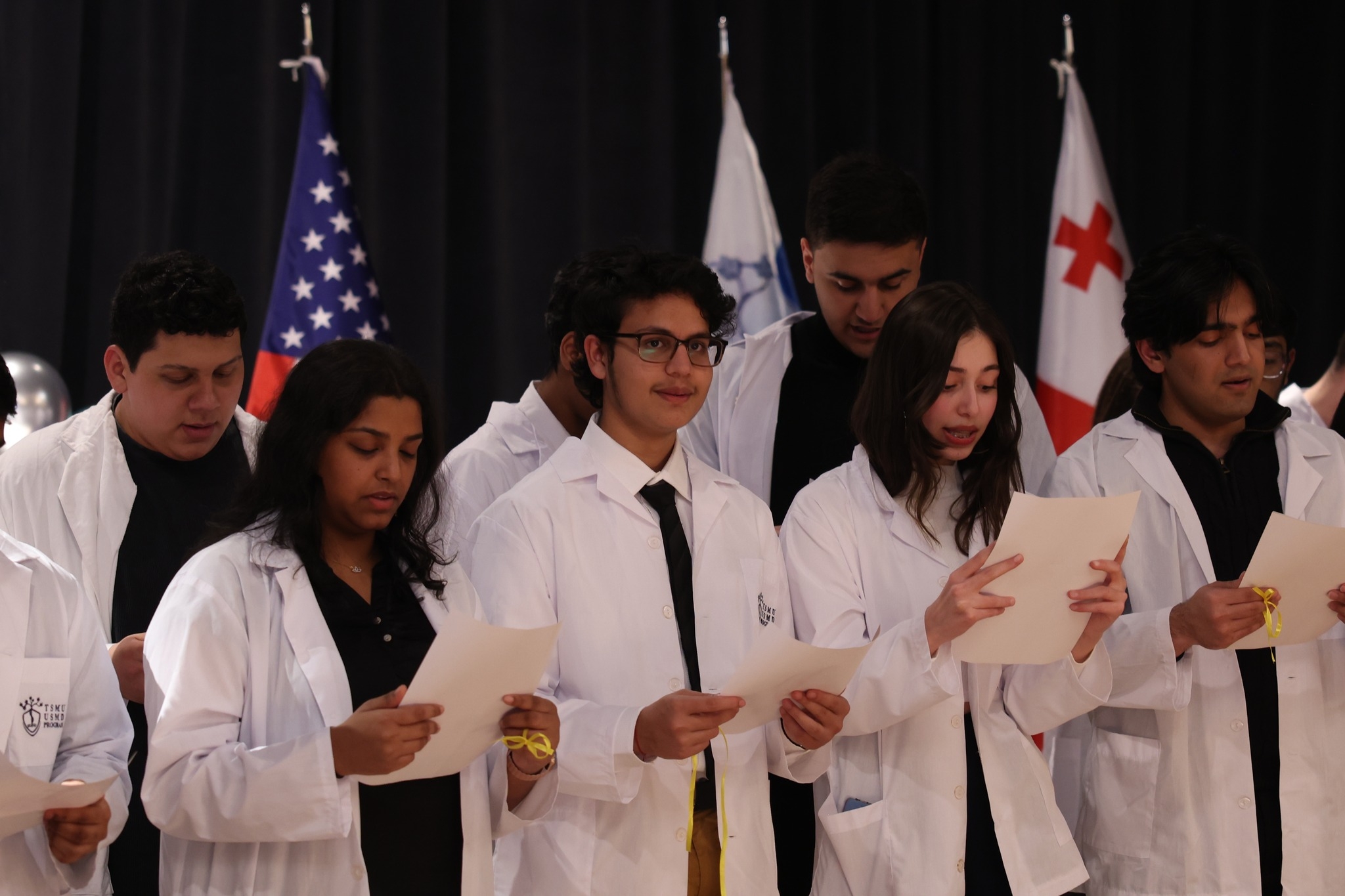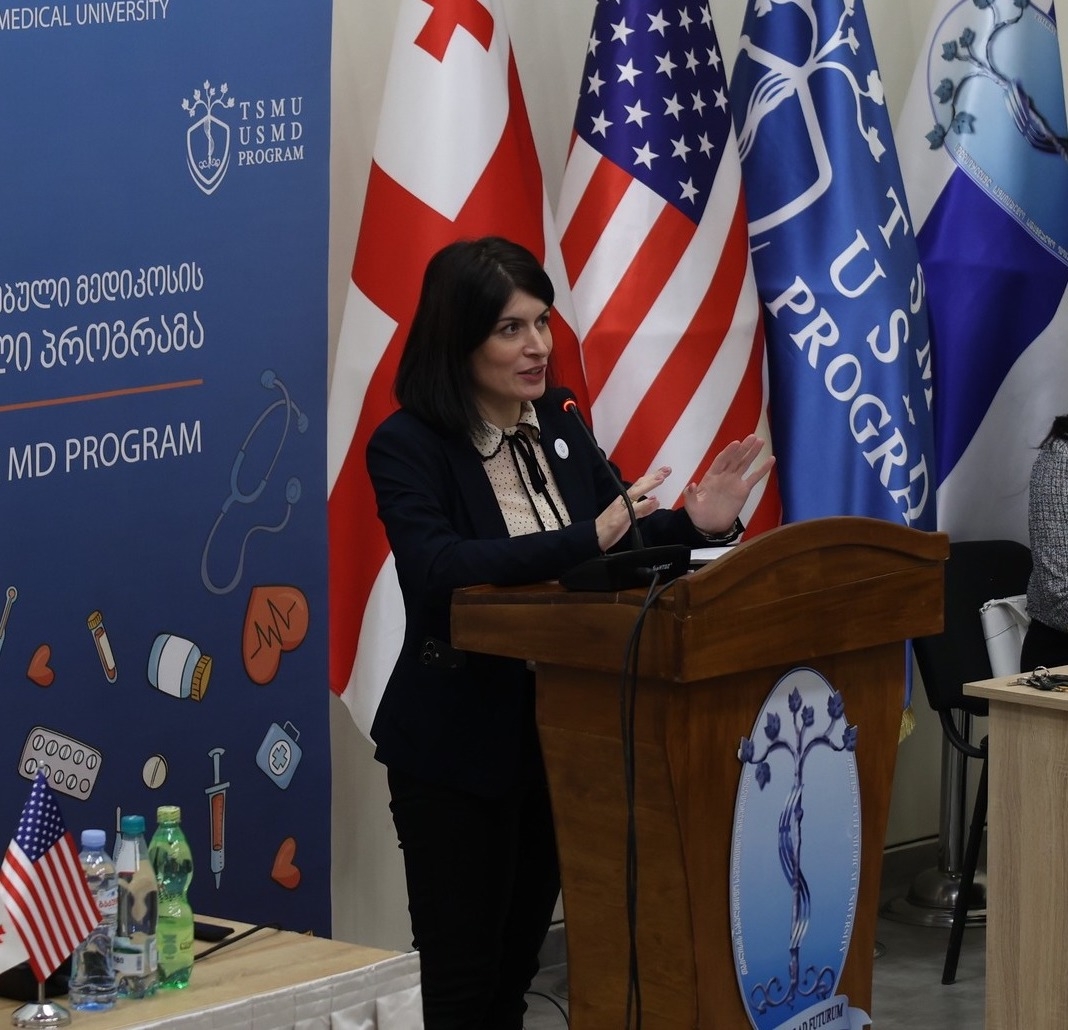JOURNAL CLUB MEETING
The American MD Program 6-year students had a valuable opportunity to engage with colleagues from Emory University School of Medicine at the Journal Club meeting.
The meeting was attended by Professor Mary Jo Lechowicz, Head of the Department of Hematology and Medical Oncology, Michael Lowe, Associate Professor of Surgery Department of Emory SOM and Becoming a Doctor Course Coordinators: Professor Nani Kavlashvili, MD, PhD, Nino Kantaria, MD, PhD, Natia Gonashvili, MD, Lika Khorbaladze, MD.
Students were involved in the fruitful exchange of ideas and knowledge during the meeting. Michael Lowe, Associate Professor of the Surgery Department at Emory SOM, also contributed his expertise to the meeting, sharing insights from the surgical perspective.
A journal club is implemented in the course "Becoming a Doctor" in the sixth year of study at TSMU American MD program. Teaching evidence-based medicine (EBM) techniques to future doctors is crucial as today's patients expect evidence-based, modern medicine from their medical professionals.
It is important for medical students to gain early and frequent practice with EBM as physicians rely on EBM on a daily basis in order to make informed decisions on patient care. A well-recognized educational intervention for teaching EBM is the journal club (JC), which is an excellent means of putting research into practice. Journal clubs, in general, are gatherings for health professionals/students to evaluate and discuss research papers as an ongoing professional development activity.
The goal of these talks is to make it easier to apply research findings to clinical settings. Journal clubs have several advantages, such as:
• establishing a connection between research and clinical practice
• supporting the development of critical appraisal skills
• fostering the use of evidence-based medicine
• supporting quality improvement initiatives
• providing continuing medical education or continuing professional development
• encouraging teamwork Students are engaged in discussions and they have been fostering critical thinking in physicians, which is crucial for both academic and clinical settings.
Many students have stated that the journal club provided them with an opportunity to boost their self-confidence and public speaking skills, their teamwork and social skills, as effective collaboration with team members was necessary for smooth presentations during JCs.




